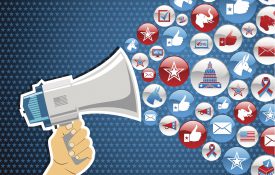-

‘Brain Training’ May Boost Working Memory, But Not Intelligence
While brain training programs might strengthen your ability to hold information in mind, they probably won’t benefit the kind of intelligence that helps you reason and solve problems.
-

On the Political Fringes, Feelings of Superiority Abound
Ideologues on both ends of the political spectrum are equally likely to believe their opinions are superior to others’, but their feelings of superiority emerge for distinct political issues.
-
New Research From Psychological Science
Read about the latest research published in Psychological Science: Genes for Emotion-Enhanced Remembering Are Linked to Enhanced Perceiving Rebecca M. Todd, Daniel J. Müller, Daniel H. Lee, Amanda Robertson, Tayler Eaton, Natalie Freeman, Daniela J. Palombo, Brian Levine, and Adam K. Anderson A deletion variant of the ADRA2B gene has been linked to emotional enhancement of memory and susceptibility to traumatic memories. The authors investigated whether this gene variant is also related to affective biases, particularly for negative stimuli. Participants were genotyped for the ADRA2B gene and took part in an attentional-blink task that contained positive, negative, and neutral words.
-
Identifying People by Their Bodies When Faces Are No Help
Every day we recognize friends, family, and co-workers from afar -- even before we can distinctly see a face. New research reveals that when facial features are difficult to make out, we readily use information about someone’s body to identify them -- even when we don’t know we’re doing so. “Psychologists and computer scientists have concentrated almost exclusively on the role of the face in person recognition,” explains lead researcher, Allyson Rice of the University of Texas at Dallas.
-
Eye Contact May Make People More Resistant to Persuasion
Making eye contact has long been considered an effective way of drawing a listener in and bringing him or her around to your point of view. But new research shows that eye contact may actually make people more resistant to persuasion, especially when they already disagree. The new findings are published in Psychological Science, a journal of the Association for Psychological Science. “There is a lot of cultural lore about the power of eye contact as an influence tool,” says lead researcher Frances Chen, who conducted the studies at the University of Freiburg, Germany, and is now an assistant professor at the University of British Columbia.
-
Testosterone Promotes Reciprocity in the Absence of Competition
Boosting testosterone can promote generosity, but only when there is no threat of competition, according to new research published in Psychological Science, a journal of the Association for Psychological Science. The findings show that testosterone is implicated in behaviors that help to foster and maintain social relationships, indicating that its effects are more nuanced than previously thought. “Testosterone may mediate competitive and potentially antisocial behavior when social challenges or threats need to be confronted and handled,” explains lead researcher Maarten Boksem of Rotterdam School of Management, Erasmus University (RSM) in the Netherlands.

